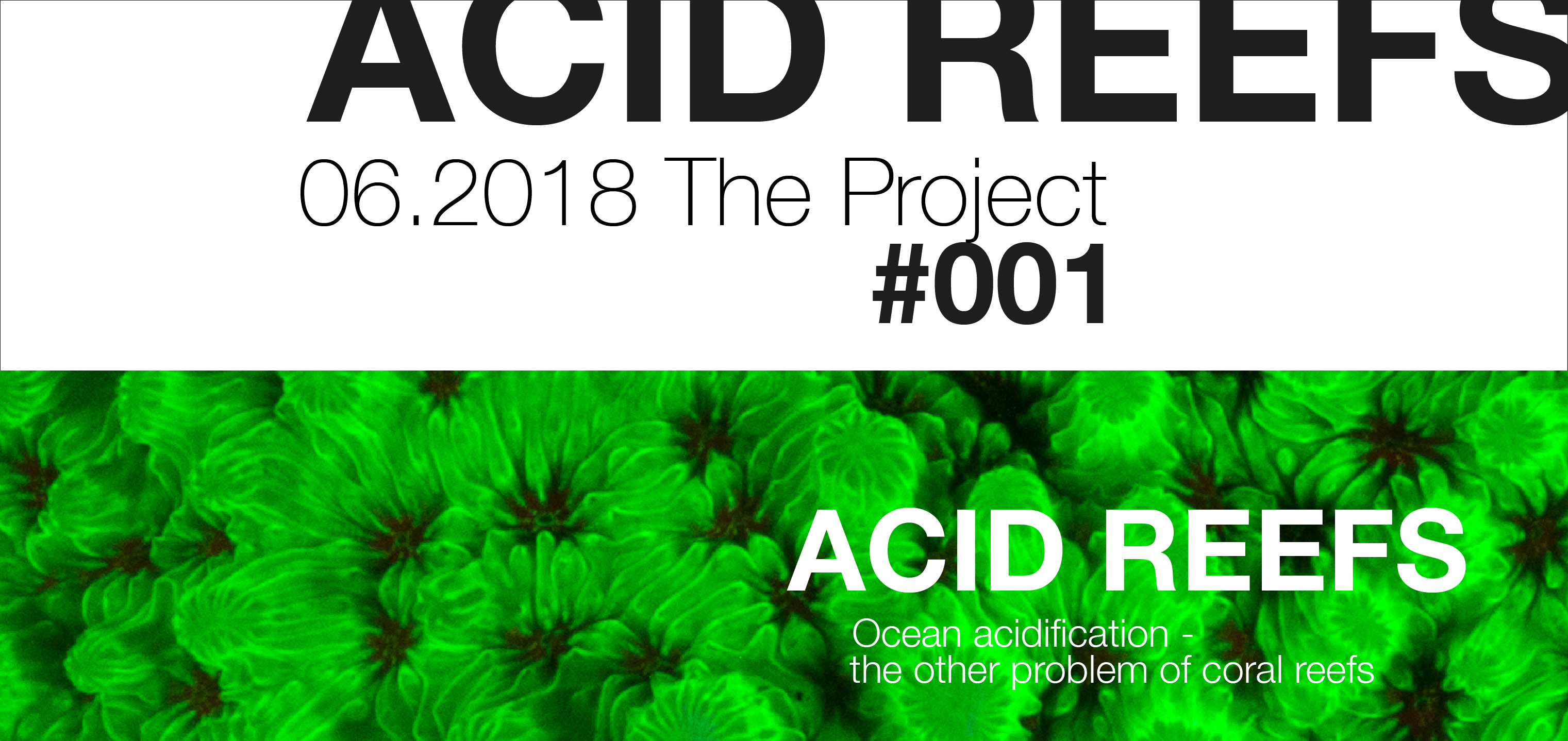
OCEAN ACIDIFICATION – THE OTHER PROBLEM OF CORAL REEFS !
The future of coral reefs in the Anthropocene era is now threatened by the billions of tons of carbon dioxide emitted into the atmosphere. Ocean acidification (OA) is thus, after global warming, the other problem that coral reefs will have to face.
The overall objective of ACID REEFS is to better understand the response of coral reefs to ocean acidification through an integrated approach. ACID REEFS is lead by Dr. Laetitia Hédouin (CNRS) from the Center for Island Research and Environment Observatory in Moorea.

Background & Objective
Maintaining marine biodiversity is a major challenge for France, particularly in its overseas territories where coral reefs are home to more than a third of the world’s marine biodiversity. In addition to its crucial ecological interest, the eco-systemic value of coral reefs for humans is estimated at ~ 27 billion euros / year.
Unfortunately, the consequences of climate change (e.g. ocean acidification) are real threats to marine biodiversity. While the oceans help to detoxify our atmosphere by absorbing about one third of the CO2 emissions related to anthropogenic activities, ocean acidification causes a disruption of the water chemistry causing adverse effects on the process of bio-mineralization of organisms building the reefs as well as their inhabitants.
While the effect of ocean acidification on individual species has been studied in the past, its impact on the reefs as a whole and the biodiversity they harbor remains poorly understood. Thus, the overall objective of ACID REEFS is to better understand the response of coral reefs to ocean acidification through an integrated approach ranging from the organism to the community, from the larvae to the adult, from observation to the mechanistic understanding as well as from the results to ecological and socio-economic predictions.
Research Project
ACID REEFS emerges from the Center for Island Research and Environment Observatory (CRIOBE), member of the laboratory of excellence “CORAIL”, located both in Moorea (French Polynesia) and Perpignan (France). Moorea is an exceptional site to study the complexity of coral ecosystems used in this innovative, integrative and interdisciplinary project. In addition to an experimental in situ ecology field station developed by the CRIOBE, ACID REEFS benefits from an experimental room reconstructing the coral reef ecosystem designed specifically for this project.
Research consortium
ACID REEFS is led by Dr. Laetitia Hédouin and brings together a consortium of scientists from innovative and complementary disciplines from seven laboratories / research centers in four countries: CRIOBE – French Polynesia, IAEA – Monaco, CSM – Monaco, Rhode Island University -USA, University Gothenburg – Sweden.
Communication and outreach: Non-profit organization Kahi Kai (France, Hawaii, French Polynesia – www.kahikai.org).
Funding: Fondation de France and by the Ocean Acidification Program of the French Foundation for Research on Biodiversity (FRB – www.fondationbiodiversite.fr) and the French Ministère de la transition écologique.


